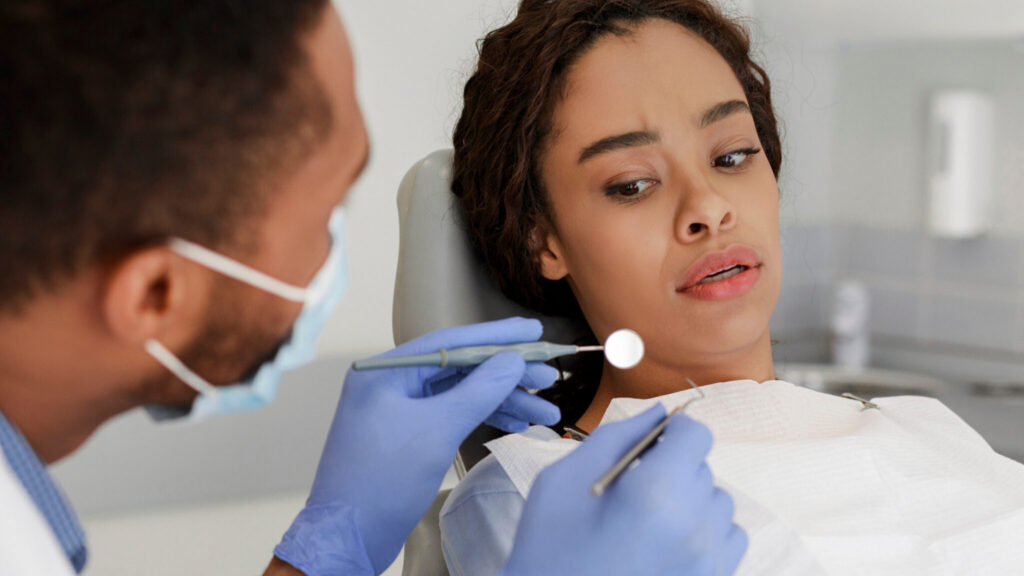
Practically three out of 4 American adults worry going to the dentist, in line with new analysis from the NYU Faculty of Dentistry.
Earlier research, performed a long time in the past, estimated that simply over 1 / 4 of the U.S. inhabitants skilled dental anxiousness. The brand new research, printed within the Journal of the American Dental Affiliation (JADA) on Tuesday, exhibits the issue is much extra widespread as we speak.
Researchers surveyed 1,003 adults consultant of the U.S. inhabitants by age, gender, race, schooling, area and family earnings. They discovered:
- 72.6 per cent reported some degree of dental worry
- 45.8 per cent mentioned they’ve average worry
- 26.8 per cent reported extreme worry
Associated: Psychology of the dental chair: Rewriting the dental expertise
Associated: Sensible Issues for Treating the Anxious Dental Affected person
Most sufferers need assist to beat worry
When requested if they might be all in favour of a free, at-home remedy for dental worry, 71.2 per cent of these with average or extreme worry mentioned sure. Those that declined usually questioned the remedy’s effectiveness, felt happy with their present coping methods or cited time considerations.
“Whereas dental worry is very treatable, few professionals have acquired related coaching or supply remedy. Transient, digital dental worry therapies utilizing apps and telehealth have the potential to succeed in many individuals, no matter the place they stay,” mentioned Richard Heyman, professor on the NYU Dentistry Heart for Oral Well being Coverage and Administration and co-director of the Household Translational Analysis Group.
Digital options: the Dental FearLess app
Heyman and colleagues have developed a program referred to as Dental FearLess, which mixes an app with non-compulsory one-on-one telehealth periods. This system makes use of ideas of cognitive behavioural remedy and mindfulness.
In a pilot research, half of contributors reported they had been not fearful after finishing this system. Medical trials are ongoing.
“Whereas the widespread prevalence of dental worry suggests it could really be rising within the common inhabitants, we’re making progress in increasing entry to remedy,” Heyman mentioned.
Taking a look at childhood recollections
The NYU crew can also be exploring how unfavourable childhood recollections contribute to dental worry. Previous research present greater than half of individuals with extreme dental anxiousness hyperlink it to painful or distressing dental visits as youngsters or adolescents. Researchers at the moment are analyzing guardian and little one reflections on dental experiences to raised perceive how these recollections form lifelong attitudes towards oral well being.

